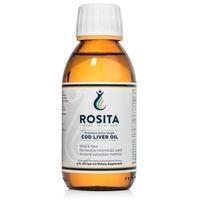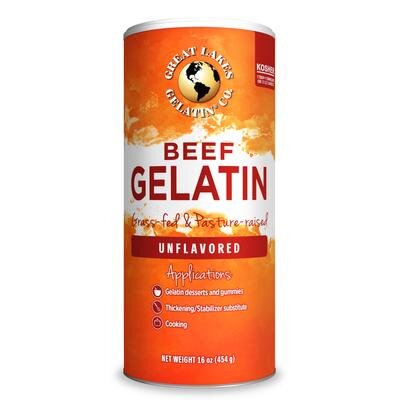Are Your Supplements Fake?
I’m frequently shocked by our industrial food and medical systems lack of oversight by the FDA. As a functional medicine nutritionist it is highly disturbing to learn that cereals are fortified with metallic shavings of iron, or that most retail stores like GNC, Target, Walmart, and Walgreens sell supplements that do not contain the active ingredient advertised! In fact, they found that some of the contaminants identified included allium, pine, wheat/grass, rice, mustard, citrus, and dracaena (houseplant) 1.
It is because of the lack of education and lack of oversight that I find it necessary to share my personal and professional views of supplements, vitamins, and nutrient ingredients . There is a very big difference between professional supplements, which undergo 3rd party testing, and supplements from your local supermarket. There is even a bigger difference between the nutritional value from whole foods and the nutrient ingredients found in the vast majority of supplements.
The Definition of Vitamins and Supplements
The google definition of supplement is “something that completes or enhances something else when added to it”. A vitamin by definition is any organic compound that is essential for biological growth and function because it cannot be made in the body. There are a few reasons why supplements are a valuable part of a modern diet: mostly due to deficient soil nutrition and poor access to fresh local nutrient dense food, and chronic deficiencies in diseased states of the body.
However, by definition a supplement is something that should be treated as an additional substance to enhance a balanced nutritional protocol or diet. Supplements often gain too much importance in our quick fix society. For instance, according to dietary supplement industry statistics the market size for food supplement sales in the US was $42.6 billion in 2019 2. Supplements are meant to be taken for a short period of time or if taken long term should be whole food based so as not to create imbalances in the body since nutritional imbalances can occur more easily when taking synthetic supplements.
Whole Food Supplements vs. Synthetic Supplements
A great example which explains the difference between whole food supplements vs synthetic supplements is the nutrient vitamin C. Most supplements that contain vitamin C will show ascorbic acid or ascorbate in the ingredient lists. This form of vitamin C is an isolated component and lacking the beneficial bioflavonoids, micronutrients, fiber and other phytochemicals that enhance the function and absorption of the natural vitamin C found in whole foods (e.g. citrus, broccoli, etc.).
Another favorite example of mine is vitamin A. Synthetic vitamin A can be found in two forms, retinol and beta-carotene. Beta-carotene requires bio-chemical reactions in the body to create the bioavailable form retinol. This extra step in the body is less optimal in certain people based on their genetic predisposition. However, either form of vitamin A requires the cofactors of other major fat soluble vitamins, mostly D and K, to balance biological function, absorption, and prevent toxicity 3.
As you can see, whole food supplements differ from synthetic supplements by their constituent nutrients that would be found symbiotically in the whole food rather than the synthetic isolated chemical. Certain nutrients such as zinc and copper influence absorption rates such that if a food provides both, the absorption is balanced whereas these nutrients aren’t always found together in isolated supplements. Synthetic supplements also contain far greater doses that can contribute to toxicity, other nutrient deficiencies/imbalances, and contribute to dis-ease.
Whole food supplements provide synergistic balance of nutrients for proper absorption and biological function of the nutrients. With that being said, I often utilize a blend of whole food and professional grade (3rd party tested) supplements to help improve the function of specific organs. Some of these supplements contain glandular extracts from bovine or porcine endocrine glands, which are known to contain the very nutrients that are necessary for the specific organ that it is taken for.
For example, if someone is suffering from adrenal deficiency, taking the adrenal glandular extract of an animal provides synergistic bioavailable nutrients for the adrenal gland, which leads to more energy balance, blood sugar regulation, better sleep, hormonal balance and better stress response, and improved immunity. Taking these types of supplements, especially for the digestive system, can quickly improve the absorption of nutrients from the food we eat so that we don’t have to depend on supplements for the rest of our lives. It is imperative to only use this type of supplementation with the recommendation and oversight of a trained medical professional.
What supplements should women take?
Now that we know how important the quality of our supplements are let’s talk about which vitamins and nutrients I think almost all women should focus on. Additionally, let’s turn our attention towards how to get these and many other nutrients from the most nutrient dense foods.
Magnesium
Foods that contain magnesium include dark leafy greens, nuts, seeds, avocados, beef liver, dark chocolate, buckwheat, kidney beans. Magnesium is a common deficiency due to poor soil health, over processing of foods, excessive sugar consumption, and toxin exposure which raise the body’s need for magnesium.
Supplemental magnesium in different forms can help with symptoms of constipation, muscle cramping, PMS, headaches, and heart disease. I prefer magnesium glycinate and threonate for brain and relaxation while magnesium citrate temporarily for constipation.
Magnesium can be absorbed very well through the skin and using magnesium sprays or epsom salt baths can help increase magnesium in the body.
Vitamin A
Retinol or vitamin A1 is the most bioavailable form of vitamin A. This form is found readily in animal products like beef liver, cod liver oil, mackerel, salmon, dairy, eggs, and fish eggs. You can find provitamin A or beta-carotene in plant foods that are brightly colored orange, red, yellow, and in dark leafy greens like kale, chard, collards, and turnip greens.
A great whole food supplemental form of vitamin A is 1 tsp of fermented cod liver oil daily.
Vitamin D
Vitamin D has three different forms and the absolute best way to get this vitamin (actually it is a hormone too!) is to get outside into the sun for at least 20 minutes a day when the sun is at the highest peak. Ancestral people groups who lived in areas where the sun shines less depended on these foods for vitamin D:
Fatty fish, like tuna, mackerel, and salmon, cod liver oil
Beef liver
Cheese
Egg yolks
My favorite vitamin D supplement is 1 tsp of fermented cod liver oil daily due to its constituent nutrients like vitamin A and EPA/DHA from omega fatty acids
B Complex
Salmon, leafy greens, eggs, beef, liver, milk, oysters, clams, muscles, legumes, and poultry contain the highest blends of vitamin Bs with all the cofactors. Liver has by far the highest amount of B vitamins in one food.
The best supplemental form of a vitamin B complex is a beef liver supplement daily. If you are supplementing with professional supplements B12, B6, B1, B2, and folate are the most common deficiencies. I highly suggest finding methylated versions of folate and B12, methyl-folate and methylcobalamin.
Vitamin C
Foods high in vitamin C include camu camu, acerola cherry, grapefruit, kiwi, guava, black currant, dried coriander, broccoli, brussel sprouts, cauliflower, dark leafy greens, green peppers, red peppers, tomatoes, and winter squash.
Supplemental vitamin C is best in whole food form from acerola cherry powder or as a liposomal Vitamin C which is better absorbed into the cells.
Vitamin K
There are multiple forms of vitamin K, but the most popular food sources are leafy greens and cruciferous vegetables which contain K1. K2 is the more important type of vitamin K because our bodies don’t convert K1 to K2 very efficiently. Vitamin K2 is only found in animal sources with one exception: fermented soy natto. Focus on grass fed dairy, eggs, liver, beef and chicken.
Avoid synthetic supplements of vitamin K3.
Vitamin E
Vitamin E is a fat soluble vitamin so it is important to make sure to eat foods that contain vitamin E with plenty of healthy fats, like ghee, avocado, butter or even lard! Hazelnuts, almonds, sunflower seeds, pastured eggs, almonds, avocado, leafy greens, broccoli and fatty fish contain adequate amounts of vitamin E.
Omega 3s
Omega fatty acids like omega 6 and omega 3 are essential fatty acids, but this doesn’t mean we need a TON of them in the diet. We only need a small amount. However, it is necessary to obtain a proper balance of omega 6 to omega 3 ratio to reduce inflammation. You can do this by supplementing with EPH/DHA fish oils to help with PMS, immune health, and chronic pain. You can also balance your omega ratio by reducing the amounts of omega 6 oils from corn, sunflower, safflower, grapeseed, and cottonseed while increasing foods high in omega 3’s are fatty fish, grass-fed beef, pastured eggs, hemp, flax, walnut, and pumpkin seeds.
My favorite all in one supplement of omega 3, with other important fat-soluble vitamins, is cod liver oil or fermented cod liver oil.
Iron
Women require adequate heme-iron in the diet to help prevent anemia due to our regular flow and loss of blood. Heme-iron is more bioavailable than non-heme iron which is found in plant foods like spinach. Heme-iron in the diet can be obtained from grass fed red meat, turkey, organ meats, shellfish, and sardines.
I take a homemade liver pill daily to get adequate iron.
Zinc
Oysters, beef, turkey, cheese, swiss chard, lima beans, potato, and gluten free oats are good sources of zinc. If you supplement with a zinc, I like the zinc picolinate form. After 1-2 months it is important to then supplement with a multi-minerals supplement so as to not create mineral imbalances. Beef liver supplements are a great way to get minerals as the cofactors in combination with many other necessary nutrients.
Gut Healing Supplements
Gelatin/Collagen
Collagen and gelatin contain the essential amino acids, which are the building blocks of every cell in your body, required to help rebuild the lining of a leaky gut or damaged intestinal wall. Also 80% of the immune system is in the intestinal system and it requires a firm defense against the outside world. It's important to have collagen in the diet when you are eating animal proteins from muscle meat in order to balance the amino acid glycine with methionine.
Collagen and gelatin can be used daily. Ideally we would get these in the whole food form from meat stock and soups, but you can also use collagen in your tea, coffee, or baked recipes. Additionally, gelatin goes well in making gravy or sauces, this coconut beet panna cotta, and as an egg replacement like these brownies!
Probiotics
Probiotics and probiotic foods are necessary in a healthy diet. Countless studies have shown the benefits of probiotics for the immune system, reducing inflammation, improving mood, and healing gastro-intestinal dysfunction. It all starts with the gut microbiome.
There are two main types of probiotics, transient and those that reside in the gut. We need to have a consistent intake of probiotics like lactobacilli, bifidobacteria, and bacillus or soil bacteria to contribute to the diversity of the microbiome. If not, dysbiosis and imbalances of opportunistic bacteria will increase and cause inflammation and leaky gut.
You can get probiotic foods in your diet from homemade kefir, yogurt, sour cream, lacto-fermented vegetables, drinks like beet kvass, and sauerkraut.
Charcoal/Bentonite Clay
Detox support is necessary in our ever growing toxic modern society. There are heavy metals in chocolate, chemicals in our water, cleaning products, foods, and beauty products. Supporting our bodies by taking activated charcoal or bentonite clay help bind to these toxins and bring them out of the body.













